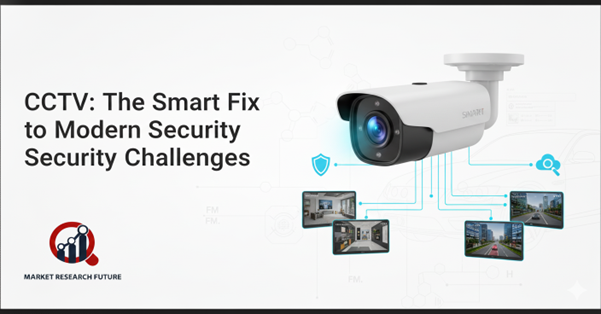CCTV: Fundamental Fixes to Security Challenges

In today’s world, safety isn’t just an option anymore— it’s a necessity. Whether it’s your home, office, or storefront, having an extra pair of digital eyes watching over your space can make all the difference. That’s the power of CCTV — constant protection, even when you’re miles away.
What Exactly Is CCTV?
CCTV stands for Closed-Circuit Television, a security system that transmits video signals within a limited network rather than broadcasting them publicly. You’ll see them everywhere—on street corners, in stores, parking lots, offices, and even homes. They’re designed to monitor and record activities, providing peace of mind and a sense of safety for owners and visitors alike.
What many don’t realize is how diverse these systems are. Some setups are as simple as a single indoor camera, while others use a network of high-definition, night-vision-enabled devices that can cover large spaces. Today’s CCTV systems also feature smart connectivity—allowing users to monitor footage directly from their smartphones or laptops, anywhere, anytime.
How Modern Surveillance Works
At its core, a CCTV system captures video using cameras connected to a storage device or cloud server. The captured footage is continuously recorded and can be reviewed in real time or later. Artificial intelligence now enhances this process—modern systems come equipped with motion detection, facial recognition, and behavioral analytics that can automatically flag unusual activities.
This automation reduces human error and increases the chances of early detection, making it far more efficient than traditional security patrols. With cloud-based storage and encrypted networks, managing and accessing footage has become seamless and secure.
Challenges and Innovations in Modern CCTV
While CCTV is an effective deterrent, it does raise a few challenges. Privacy concerns remain a hot topic, and the cost of advanced systems can be high. However, innovations in wireless technology, compact camera design, and affordable cloud storage are making these systems more accessible than ever.
The Future of Security
CCTV is no longer just about recording crime—it’s about preventing it. With smart features and real-time alerts, today’s surveillance systems create safer homes, smarter businesses, and more secure public spaces. Whether you’re protecting a small shop or an entire estate, CCTV remains your first and most reliable line of defense against the unexpected.

Leave a Comment